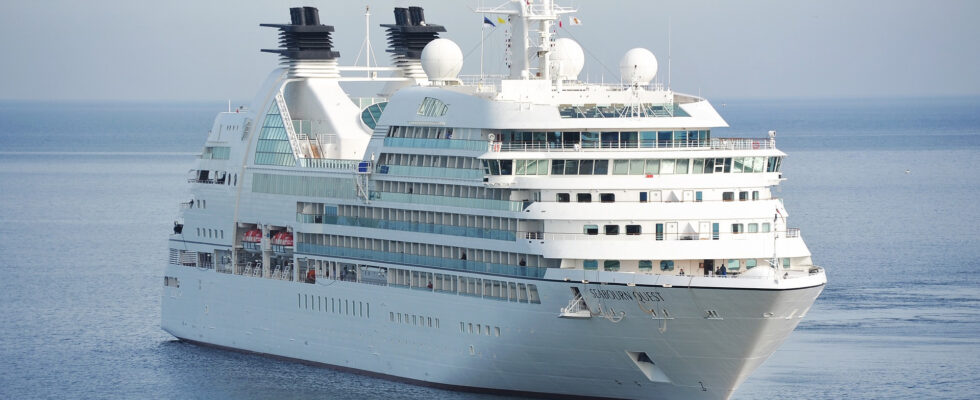Mass tourism is facing a wall due to global warming, in which air transport contributes. Will it therefore be necessary to implement a carbon passport to limit certain trips?
Summer 2023 marked a turning point for the travel industry. By the end of July, international tourist arrivals worldwide reached 84% of pre-pandemic levels. In some European countries, such as France, Denmark and Ireland, tourism demand has even exceeded its pre-pandemic level.
This is perhaps excellent news from an economic point of view, but there are fears that this return to status quo already have disastrous consequences on the environmental and social levels.
The summer of 2023 was marked by record heatwaves in many parts of the world. People have had to flee wildfires in Greece and Hawaii, while severe weather warnings have been issued in many popular holiday destinations such as Portugal, Spain and Turkey. Experts have concluded that climate change is responsible for these extreme weather conditions.

Tourism is part of the problem. The tourism sector generates around 10% of the greenhouse gas emissions causing the climate crisis.
The negative effects of tourism on the environment have become so severe that some suggest radical changes to our travel habits are inevitable. In a 2023 report on the future of sustainable travel, tour operator Intrepid Travel proposed the idea of ”carbon passports” to help the tourism industry survive.
What is a carbon passport?
The idea of the carbon passport is based on allocating to each traveler an annual carbon quota which they cannot exceed. These quotas then make it possible to “ration” travel.
This concept may seem extreme. But the idea of personal carbon allowances is not new. A similar concept – called “personal carbon trading” – was discussed in the UK House of Commons in 2008, before being abandoned due to its apparent complexity and the possibility of resistance from public opinion.
The average annual carbon footprint of a person in the United States is 16 tons, one of the highest rates in the world. In the UK, this figure stands at 11.7 tonnes, more than five times the figure recommended by the Paris Agreement to keep global temperature rise below 1.5°C (in France, this is of the same order of magnitude, editor’s note).
Globally, the average annual carbon footprint of a person is closer to four tonnes. But to have the best chance of keeping temperatures from rising above 2°C, the average global carbon footprint must fall to less than two tonnes by 2050. This figure is equivalent to around two round-trip flights between London and New York.
The Intrepid Travel report predicts that carbon passports will be in use by 2040. However, several laws and restrictions have been put in place over the past year, suggesting that our travel habits may already be about to change.
Discourage more people from flying
Between 2013 and 2018, the quantity of CO2 emitted by commercial flights worldwide increased by 32%. To be sure, improvements in fuel efficiency are slowly reducing emissions per passenger. But a 2014 study found that whatever efforts the industry makes to reduce its carbon emissions, they will be offset by growth in air traffic.
For emissions reductions to have a significant effect, ticket prices would have to increase by 1.4% per year, in order to discourage some people from flying. However, in reality, ticket prices are falling.


Some European countries are starting to take steps to reduce air travel. In Belgium, since 1er April 2023, passengers on short-haul flights and older aircraft are subject to higher taxes in order to encourage other forms of travel.
Less than two months later, France banned short-haul domestic flights when the same journey can be made by train in two and a half hours or less. Spain is expected to do the same soon.
A similar project could also see the light of day in Germany. In 2021, a YouGov poll found that 70% of Germans would support such measures to combat climate change if alternative routes by train or boat were available.
Cruise ships that pollute
Air transport is not the only one to be under fire. A 2023 survey by the European Federation for Transport and Environment found that cruise ships release four times more sulfuric gases – which are proven to cause acid rain and several respiratory ailments – in the atmosphere than all the 291 million cars on the road in Europe.
Such statistics have forced European tourist destinations to take action against the cruise industry. In July, Amsterdam’s city council banned cruise ships from docking in the city center to reduce both tourism and pollution, a move that has proven successful elsewhere.
In 2019, Venice was the most polluted European port, due to the large number of cruise ships. But she fell to 41e place in 2022 after large cruise ships were banned from entering the city’s waters, reducing air pollution in Venice from ships by 80%.


Changing destination under the pressure of climate change
The Intrepid Travel report also highlights that climate change will soon impact not only how we travel, but where we travel. Scorching temperatures will likely diminish the appeal of traditional beach destinations, prompting European tourists to seek cooler destinations for their summer vacations, such as Belgium, Slovenia and Poland.
Several travel agencies have reported a noticeable increase in holiday bookings to cooler European destinations like Scandinavia, Ireland and the UK during the summer 2023 peak season.
Whatever the solution, changing our travel habits seems inevitable. Destinations around the world, from Barcelona to the Italian Riviera to Everest, are already calling for limiting tourist numbers to combat crowds and pollution.
Vacationers should prepare to change their travel habits now, before this change is forced on them.


Ross Bennett-Cook, Visiting Lecturer, School of Architecture + Cities, University of Westminster
This article is republished from The Conversation under a Creative Commons license. Read the original article.
Subscribe for free to Artificielles, our newsletter on AI, designed by AIs, verified by Numerama!
